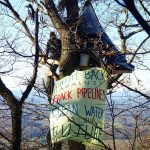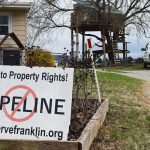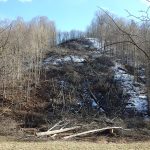
Resistance to the fracked-gas Mountain Valley and Atlantic Coast pipelines is growing, crossing all sorts of divides. Government agencies and officials supporting the projects are on the wrong side of history.

Resistance to the fracked-gas Mountain Valley and Atlantic Coast pipelines is growing, crossing all sorts of divides. Government agencies and officials supporting the projects are on the wrong side of history.

Tree-sits, legal battles and more have sprung up in response to the natural gas pipelines being proposed and built across the region.

The Trump administration’s proposal to roll back federal coal ash safeguards gives more leeway to states — and advocates worry that would put drinking water at risk.

The case of Republic Energy makes it clear that the deck is still stacked in favor of the coal industry. But that has never dissuaded Coal River Mountain Watch from challenging the industry and the agencies that enable it.

The fossil fuel industry and monopoly utilities will not turn easily from their money-making course. We citizens must continue to hold them accountable.

New pipelines transporting natural gas and gas liquids would cut across hundreds of miles through Appalachia and beyond, putting people, land and water at risk. Here, residents along the route share their stories. Mountain Valley Pipeline Cletus and Beverly Bohon…

If the Mountaineer XPress Pipeline is built, Barbara Jividen’s “little piece of paradise” by the Kanawha River could be upended.

M. Beram’s formerly quiet neck of the woods has already been disturbed by the fracking industry. Now, the Mountaineer XPress Pipeline’s right-of-way is running several hundred feet from her home.

Ashby Berkley’s plans to renovate Sweet Springs Resort in Monroe County, W.Va., are muddied by fears of the Mountain Valley Pipeline puncturing an aquifer and depleting the resort’s renowned natural springs.